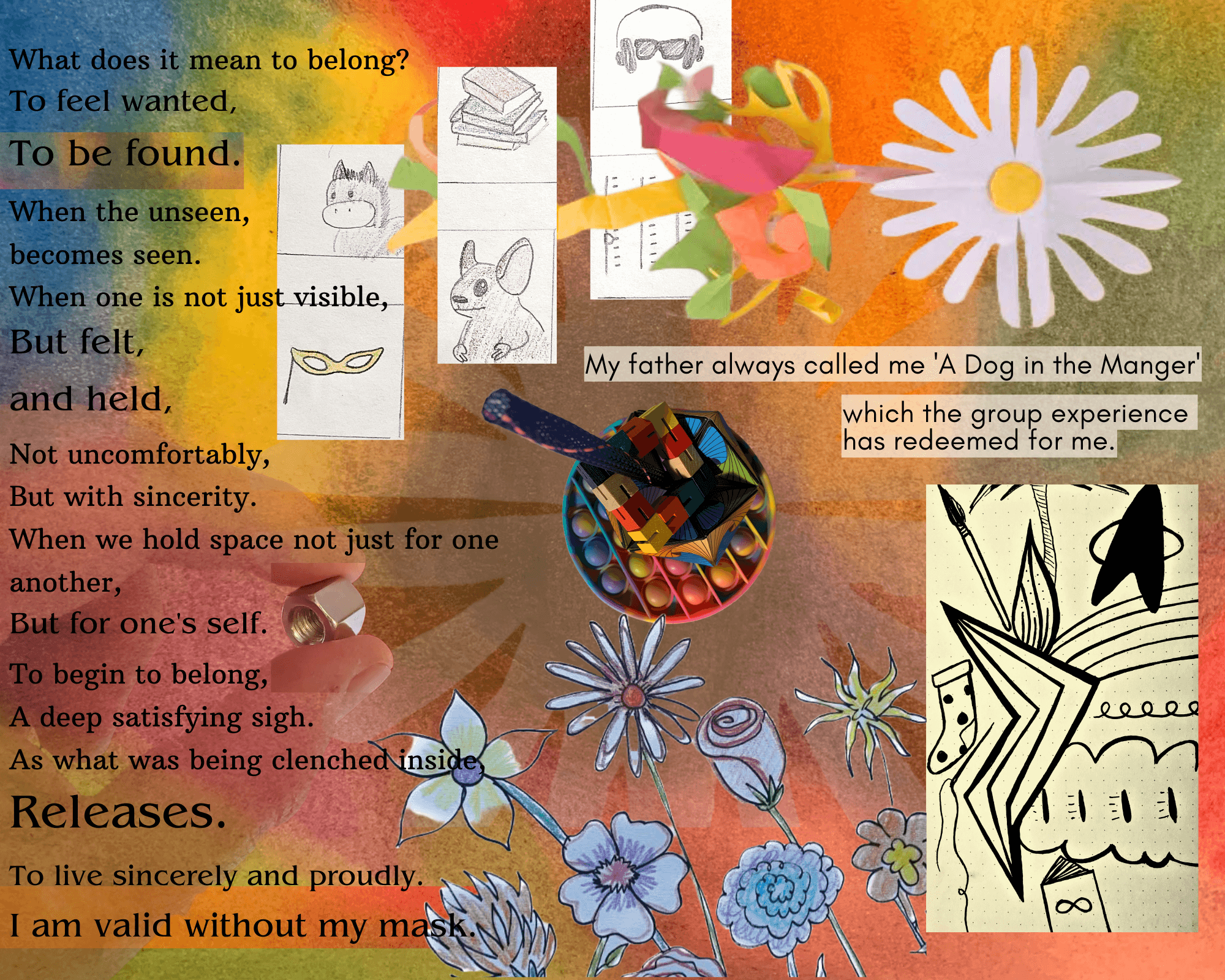‘This group didn’t suck!’ was the best feedback I received at the conclusion of Scattergram’s A.C.C.E.P.T. Group for Neurodivergent Adults >30 this spring. – Wendy McGuire, Group Facilitator
Groups can be challenging. When you’re neurodivergent, they may even suck. You may have a long history of struggling to communicate and be understood in friendship, school, or work groups. If you were diagnosed early, you may have attended groups designed to teach you how to be ‘normal’ a.k.a. neurotypical. Acceptance and belonging may not even come easily in your family circle.
It is precisely because the group setting is where so much pain, confusion, and exclusion may occur, that groups can be so transformative for neurodivergent individuals. Yet without a firm neurodiversity-affirming foundation, groups risk replicating past trauma. See what happens when you put people with hyper- and hypo-sensitivities, hyperfocus and inattention, pervasive demand avoidance and rule-seeking behaviour, and years of masking in a room together!
Because of the inherent challenges of groups for neurodivergent people, the best feedback I received at the conclusion of Scattergram’s A.C.C.E.P.T. Group for Neurodivergent Adults >30 this spring was ‘This group didn’t suck!’. The >30 Group is part of the A.C.C.E.P.T. Program™ suite of groups for neurodivergent youth and adults that promotes understanding, communication, and connection. We meet biweekly for eight sessions to explore themes of Assertiveness, Curiosity, Connection, Exceptionality, Perception, and Tolerance.
What made the A.C.C.E.P.T. >30 Group not suck?
Language: Neurodivergence is presented as a difference, not a disorder. Non-pathologizing language is used by group facilitators and in written material. Pathologizing language that participants inevitably bring to discussions is unpacked.
Group Facilitators: One or more facilitators self-identifies as neurodivergent.
Predictability: Every week we follow the same structure of checkin, learning goals, content related to theme, paired breakout groups, large group discussion, takeaways, between session activities (not homework!), checkout.
Information processing: Each theme from the A.C.C.E.P.T. >30 Manual is sent out in advance. There is space in the manual to write personal notes and all ‘between session activities’ are included in appendices (reduce pressure on working memory).
Safe and optional participation: Breakout pairs are used instead of groups to allow more time and depth of interaction (safe space to explore and unmask). Between session activities (‘not homework’) are completely optional and options to pass are always given at checkins and large group discussions (reduce demand pressures).
With a neurodiversity-affirming foundation, groups provide many benefits to neurodivergent people that individual therapy can’t. They provide a space to:
- Explore a multiplicity of perspectives
- Gain self-understanding by comparing your perceptions and experiences with others
- Brainstorm strategies and ideas with other neurodivergent individuals
- Practice unmasking
- Share stims and special interests
- Challenge false beliefs about neurodivergence
- Feel normal
- Experience acceptance, inclusion, and belonging
- Make lasting neurodivergent connections
- Be ‘publicly’ honoured and celebrated in all your neurodivergent glory in a facilitated space
If you are a neurodivergent person seeking therapy, or the parent of a neurodivergent tween or teen, I hope you will consider joining Scattergram’s A.C.C.E.P.T. Group for Neurodivergent Adults >30 or The ND Room for Youth in grades seven to twelve. We will do our best to make sure it doesn’t suck.

Group Artwork titled “What does it mean to belong” for the article ‘This Group Didn’t Suck!’: When Groups are Neurodiversity-Affirming
Connecting
The Dots
‘This Group Didn’t Suck!’: When Groups are Neurodiversity-Affirming
For neurodivergent individuals, participating in groups often sucks. Not only do groups with a neurodiversity-affirming foundation not suck, they provide benefits that individual therapy can’t, such as exposure to other neurodivergent minds, a place to practice unmasking, and, most of all, feel normal without doing anything at all.
Scattergram’s neurodiversity-affirming groups:
Use non-pathologizing language
Have a predictable structure and format
Provide maximum support and minimal demands
Take into account memory and information processing needs
Provide a safe space for optional participation
Don’t suck


